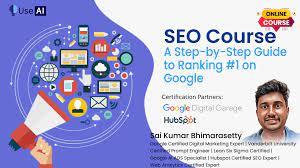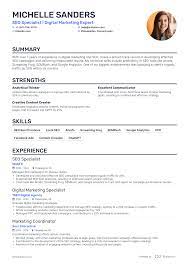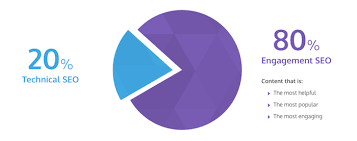SEO Job Salary: An Insight into the Lucrative World of Search Engine Optimization
In today’s digital age, businesses are increasingly relying on search engine optimization (SEO) to improve their online visibility and attract more organic traffic. As a result, the demand for skilled SEO professionals has skyrocketed, making it a highly sought-after career path. If you’re considering a career in SEO or are simply curious about the earning potential in this field, let’s delve into the world of SEO job salaries.
First and foremost, it’s important to note that SEO job salaries can vary significantly depending on various factors such as experience level, location, industry, and company size. However, with the right skills and expertise, SEO professionals can enjoy competitive compensation packages.
Entry-level positions in SEO typically offer salaries ranging from £20,000 to £30,000 per year in the UK. These roles often involve assisting more senior team members with keyword research, content optimization, and basic technical tasks. As one gains experience and demonstrates proficiency in these areas, opportunities for career advancement arise along with higher salary prospects.
Mid-level SEO specialists with a few years of experience can expect salaries ranging from £30,000 to £50,000 per year. At this stage of their careers, professionals often handle more complex tasks such as developing comprehensive SEO strategies, conducting competitor analysis, optimizing website architecture and navigation systems. Additionally, they may be responsible for managing content creation teams or collaborating with web developers to ensure optimal site performance.
Senior-level SEO experts who have extensive industry experience and a proven track record of delivering impressive results can command salaries upwards of £50,000 per year. These professionals possess a deep understanding of search engine algorithms and leverage advanced techniques to drive organic traffic growth. They may also be responsible for overseeing multiple client accounts or leading an entire team of SEO specialists.
It is worth noting that these salary ranges are not set in stone but rather serve as general guidelines. The SEO industry is highly dynamic, and as new technologies and techniques emerge, the demand for specialized skills increases. This can lead to higher salaries for professionals who possess expertise in areas such as mobile optimization, voice search, local SEO, or technical SEO.
Furthermore, the location of the job also plays a significant role in determining salary levels. In major cities like London or Manchester, where the cost of living is higher, salaries tend to be more competitive compared to smaller towns or rural areas.
In conclusion, a career in SEO offers promising salary prospects with ample room for growth and advancement. As businesses continue to recognize the importance of organic search visibility, the demand for skilled SEO professionals will likely remain high. By staying up-to-date with industry trends and acquiring specialized knowledge, you can position yourself as a valuable asset in this lucrative field and enjoy a rewarding career with attractive compensation.
The Advantages of SEO Job Salary: Lucrative Earning Potential and More
- Lucrative earning potential
- Growing industry
- Versatile career path
- Constant learning and development
- Creative problem-solving
- Impactful results
- Flexibility in work arrangements
Challenges in SEO Job Salaries: Fluctuations, Standardization, and Recognition
- Salary Fluctuations
- Lack of Standardization
- Limited Recognition
Lucrative earning potential
Lucrative Earning Potential: The Allure of SEO Job Salaries
In today’s digital landscape, where businesses strive to dominate search engine rankings and increase their online visibility, the importance of skilled SEO professionals cannot be overstated. One of the major advantages of pursuing a career in SEO is the lucrative earning potential it offers.
SEO job salaries can be highly competitive, with attractive compensation packages that reflect the demand for skilled professionals in this field. As businesses recognize the value of organic search traffic and invest more resources into SEO strategies, the need for talented individuals who can deliver results has grown exponentially.
The earning potential in SEO is influenced by various factors such as experience level, location, industry, and company size. Entry-level positions provide a solid foundation for newcomers to gain practical knowledge and skills while offering salaries that range from £20,000 to £30,000 per year in the UK. This allows individuals to enter the field with a respectable starting salary and room for growth.
As professionals gain experience and expertise in SEO techniques and strategies, they can progress to mid-level positions where salaries typically range from £30,000 to £50,000 per year. At this stage, they take on more complex responsibilities such as developing comprehensive SEO campaigns and optimizing websites for maximum visibility. With each successful project and demonstrated proficiency, individuals can expect their salaries to grow accordingly.
For those who excel in their careers and become senior-level SEO experts with extensive experience and a proven track record of driving organic traffic growth, the earning potential becomes even more enticing. Salaries for senior-level professionals can surpass £50,000 per year or even reach six-figure figures depending on their expertise and responsibilities.
The allure of a lucrative salary is further enhanced by the dynamic nature of the industry. As technology evolves and new trends emerge within search engine algorithms or user behavior patterns, there is an ongoing demand for specialists who possess up-to-date knowledge in areas such as mobile optimization, voice search, local SEO, or technical SEO. By acquiring expertise in these niche areas, professionals can position themselves for higher-paying roles and stand out in the competitive job market.
In conclusion, the earning potential in the field of SEO is undoubtedly attractive. As businesses increasingly prioritize organic search visibility as a key driver of success, the demand for skilled professionals continues to rise. With competitive compensation packages and opportunities for growth and advancement, pursuing a career in SEO can be a highly rewarding choice for those looking to combine their passion for digital marketing with financial success.
Growing industry
Growing Industry: The Lucrative Pros of SEO Job Salaries
In the ever-expanding realm of online businesses and digital marketing, search engine optimization (SEO) has emerged as a key strategy for success. As a result, the demand for skilled SEO experts is on the rise, creating a wealth of job opportunities and the potential for lucrative salaries.
One significant advantage of pursuing a career in SEO is the industry’s continuous growth. With more businesses recognizing the importance of online visibility and organic search traffic, the need for SEO professionals has skyrocketed. This trend shows no signs of slowing down, ensuring a steady supply of job openings and ample room for career advancement.
The increasing reliance on digital marketing strategies by businesses across various sectors has fueled the demand for SEO expertise. From small startups to multinational corporations, companies are investing heavily in optimizing their websites to rank higher in search engine results pages (SERPs). This surge in demand has created a competitive landscape where skilled SEO professionals are highly sought after.
As businesses strive to outperform their competitors online, they understand that effective SEO strategies can make all the difference. This realization has led to an increased willingness to invest in top-notch talent and innovative approaches. Consequently, SEO professionals with proven track records can negotiate attractive salary packages that reflect their value in driving organic traffic growth and boosting online visibility.
Moreover, the continuous evolution of search engine algorithms and digital technologies ensures that the field of SEO remains dynamic and challenging. This presents exciting opportunities for professionals to expand their skill sets and stay at the forefront of industry trends. By keeping up with emerging techniques such as voice search optimization or mobile-first indexing, SEO experts can position themselves as invaluable assets to businesses seeking sustainable online success.
In addition to job security and potential salary advancements, working in an industry that is constantly evolving offers personal and professional growth opportunities. SEO professionals have access to a vast array of resources, training programs, conferences, and networking events that allow them to enhance their knowledge and stay ahead of the curve. This continuous learning environment ensures that SEO experts are always equipped with the latest tools and strategies to deliver optimal results for their clients or employers.
In conclusion, the growing industry of SEO presents an array of benefits, with competitive salaries being a notable advantage. The increasing demand for skilled SEO professionals ensures a steady stream of job opportunities and potential for salary advancements. Furthermore, the dynamic nature of the field offers room for personal and professional growth, allowing individuals to thrive in an industry that is constantly evolving. If you have a passion for digital marketing and a knack for optimizing online visibility, pursuing a career in SEO can be highly rewarding both financially and intellectually.
Versatile career path
Versatile Career Path: Unlocking Opportunities Across Industries with SEO Skills
One of the major advantages of pursuing a career in SEO is the versatility it offers. SEO skills are highly transferable across various industries, opening up a world of diverse job opportunities and allowing professionals to work with clients or companies from different sectors.
In today’s digital landscape, almost every industry recognizes the importance of search engine optimization in driving online visibility and attracting organic traffic. This means that SEO professionals are in high demand across sectors such as e-commerce, technology, healthcare, finance, hospitality, and more.
The beauty of having transferable SEO skills is that professionals can easily transition between industries without starting from scratch. The core principles and techniques of SEO remain consistent regardless of the sector. Whether it’s optimizing website content, conducting keyword research, or implementing technical strategies, these skills can be applied universally.
For example, an SEO specialist who has worked extensively in the e-commerce industry can leverage their knowledge to help a healthcare company improve its online presence. They can adapt their expertise to optimize medical service pages or create content strategies that target a specific audience. This versatility allows professionals to broaden their horizons and explore new challenges while still utilizing their existing skill set.
Moreover, working with clients or companies from different sectors provides invaluable experience and exposure. It allows SEO professionals to gain insights into various business models, consumer behaviors, and industry-specific trends. This diverse exposure enhances their problem-solving abilities and enables them to develop innovative strategies tailored to each unique context.
The flexibility offered by a versatile career path in SEO also extends beyond working for companies or clients. Many skilled SEO professionals choose to venture into entrepreneurship by starting their own digital marketing agencies or consultancy services. With their transferable skills and industry knowledge, they can cater to clients from multiple sectors and build successful businesses.
Additionally, as technology continues to evolve and new digital marketing channels emerge, SEO professionals have the opportunity to expand their skill set and stay ahead of the curve. They can delve into areas such as voice search optimization, mobile SEO, or data analytics, further enhancing their career prospects and adaptability.
In conclusion, the versatility of a career in SEO is a significant advantage. The ability to transfer skills across industries provides professionals with a wealth of opportunities to explore diverse job roles and work with clients or companies from various sectors. This adaptability not only keeps their work engaging and exciting but also allows them to continuously grow and expand their expertise. Whether it’s climbing the corporate ladder or embarking on an entrepreneurial journey, the versatile nature of SEO skills ensures that professionals can forge a rewarding and dynamic career path.
Constant learning and development
Constant learning and development: The ever-evolving nature of search engine algorithms and digital marketing techniques keeps SEO professionals on their toes. This dynamic environment offers continuous learning opportunities, ensuring that individuals can enhance their skills and stay up-to-date with industry trends.
One of the most exciting aspects of pursuing a career in SEO is the constant learning and development it entails. Search engine algorithms are constantly evolving, and new digital marketing techniques emerge regularly. This means that SEO professionals must stay updated with the latest trends, strategies, and best practices to remain effective in their roles.
The need to adapt to changing algorithms and consumer behavior keeps SEO professionals engaged and motivated. They are constantly challenged to refine their skills, experiment with new approaches, and find innovative solutions to improve website rankings and organic traffic. This ongoing learning process not only ensures that they stay ahead of the game but also allows them to offer valuable insights and expertise to clients or employers.
SEO professionals have access to a wealth of resources for continuous learning. Online communities, industry forums, blogs, podcasts, webinars, and conferences provide platforms for knowledge sharing among experts. They can explore case studies, attend workshops or training sessions, and participate in online courses specifically tailored for SEO professionals.
By embracing this culture of continuous learning, SEO professionals can develop a deep understanding of search engine optimization principles while honing their technical skills. They gain insights into user behavior patterns, keyword research strategies, content optimization techniques, link building tactics, website analytics interpretation – all crucial components for successful SEO campaigns.
Moreover, staying up-to-date with industry trends allows SEO professionals to anticipate changes in search engine algorithms before they happen. This proactive approach enables them to adjust strategies accordingly and maintain optimal website performance in the ever-competitive online landscape.
Constantly expanding their knowledge base also opens doors for career advancement opportunities within the field of digital marketing. As individuals acquire expertise in specialized areas such as mobile optimization or voice search optimization, they become valuable assets to companies seeking to enhance their online presence.
In conclusion, the constant learning and development aspect of an SEO job salary is a significant advantage. This field offers professionals the chance to continually expand their knowledge, adapt to changing algorithms, and remain at the forefront of digital marketing strategies. By embracing this dynamic environment, SEO professionals can ensure they provide effective solutions and drive success for their clients or employers.
Creative problem-solving
Creative Problem-Solving: Unleashing the Intellectual Stimulation of SEO Job Salary
In the world of search engine optimization (SEO), professionals are not only tasked with improving website visibility and driving organic traffic but also with overcoming a myriad of challenges along the way. One significant advantage of pursuing an SEO career is the opportunity to exercise creative problem-solving skills, resulting in intellectual stimulation and professional growth.
SEO professionals are required to possess a unique blend of technical expertise and creative thinking. From keyword optimization to content strategy, website architecture to enhancing user experience, each aspect demands careful consideration and innovative approaches. This combination of analytical thinking and creativity makes the job intellectually stimulating.
One aspect where creative problem-solving shines in SEO is keyword optimization. Identifying relevant keywords that align with a business’s target audience requires research, analysis, and intuition. It involves understanding user intent, exploring niche opportunities, and staying ahead of evolving search trends. By leveraging their creativity, SEO professionals can uncover hidden gems that drive organic traffic and boost a website’s visibility.
Content strategy is another area where creativity plays a vital role in SEO success. Crafting engaging, informative, and shareable content requires thinking beyond conventional approaches. Creativity allows SEO professionals to develop unique angles, explore different formats such as infographics or videos, and tell captivating stories that resonate with the target audience. By combining their technical knowledge with creative flair, they can create content that not only ranks well but also captivates readers.
Website architecture and user experience improvements are yet another challenge that demands innovative problem-solving skills. Optimizing site navigation, improving page load speed, enhancing mobile responsiveness – these tasks require a deep understanding of both technical aspects and user behaviour. Creative thinking enables SEO professionals to find elegant solutions that enhance usability while aligning with search engine guidelines.
The beauty of creative problem-solving in SEO lies in its ever-evolving nature. Search engines constantly update their algorithms, presenting new challenges for professionals to tackle. This dynamic landscape demands adaptability and a willingness to think outside the box. Creative SEO professionals embrace these changes as opportunities for growth, continuously seeking innovative strategies to stay ahead of the curve.
In conclusion, the intellectual stimulation provided by creative problem-solving is a significant pro of pursuing an SEO career. The blend of technical expertise and creative thinking required in this field allows professionals to overcome challenges and achieve remarkable results. By embracing innovative approaches, SEO specialists can enhance website visibility, drive organic traffic, and ultimately contribute to the success of businesses in the digital realm.
Impactful results
Impactful Results: The Rewarding Aspect of SEO Job Salary
In the world of search engine optimization (SEO), professionals have the opportunity to witness the direct impact of their efforts, making it one of the most rewarding aspects of an SEO career. By improving a website’s visibility in search engine rankings, these experts can significantly increase organic traffic, leads, conversions, and ultimately contribute to a company’s success.
Imagine working on a website that was struggling to attract visitors and generate meaningful engagement. As an SEO specialist, you analyze the website’s performance, conduct thorough keyword research, optimize on-page elements, and develop a comprehensive backlink strategy. Over time, as your strategies take effect and search engines recognize the improvements, you witness a steady rise in organic traffic.
Seeing these results firsthand is incredibly gratifying. It not only validates your expertise and hard work but also demonstrates the power of effective SEO techniques. You are able to witness how your efforts directly contribute to increasing a website’s visibility and attracting more potential customers.
The impact extends beyond just increased traffic. With improved visibility in search engine rankings comes higher chances of capturing qualified leads. As more users discover the website through organic searches, they are more likely to engage with its content and take desired actions such as signing up for newsletters, making purchases, or filling out contact forms.
Moreover, by optimizing websites for relevant keywords and providing valuable content that aligns with user intent, SEO professionals can enhance user experience. This leads to longer dwell times on web pages and lower bounce rates – indicators that search engines use to determine the quality and relevance of a website. Consequently, improved user experience can further boost search engine rankings and attract even more organic traffic.
The impact of successful SEO campaigns goes beyond short-term gains. As companies experience sustainable growth in organic traffic and conversions over time, they can establish themselves as authoritative players in their industry. This increased brand visibility not only attracts more customers but also fosters trust and credibility among existing ones.
In conclusion, the impact of an SEO job salary is significant. By employing effective strategies and techniques, SEO professionals can witness tangible results that directly contribute to a company’s success. The ability to drive increased organic traffic, generate leads, and improve user experience makes this career path not only financially rewarding but also intellectually stimulating and fulfilling. If you’re someone who enjoys seeing the direct impact of your efforts and making a difference in the digital landscape, pursuing a career in SEO may be the perfect fit for you.
Flexibility in work arrangements
Flexibility in Work Arrangements: A Perk of SEO Job Salaries
One of the many advantages of pursuing a career in SEO is the flexibility it offers in terms of work arrangements. Unlike traditional office jobs, many SEO roles provide the option to work remotely or have flexible hours. This flexibility not only benefits professionals but also contributes to better outcomes for clients and employers.
The ability to work remotely is a significant advantage for SEO specialists. It allows individuals to break free from the constraints of commuting and office settings, providing them with the freedom to work from anywhere with an internet connection. Whether it’s from the comfort of their own home, a co-working space, or even while traveling, remote work enables SEO professionals to create an environment that suits their needs and preferences.
Moreover, having flexible hours is another perk that comes with many SEO positions. Rather than adhering strictly to a 9-to-5 schedule, professionals can often set their own working hours based on their productivity patterns and personal commitments. This flexibility empowers individuals to achieve a better work-life balance by accommodating personal obligations such as family responsibilities, hobbies, or other interests.
The ability to choose when and where to work not only enhances job satisfaction but also boosts productivity. Research has shown that individuals who have control over their work arrangements are often more motivated and engaged in their tasks. This increased autonomy can lead to higher quality output as SEO specialists are able to focus on delivering exceptional results without the distractions commonly found in traditional office settings.
From an employer’s perspective, offering flexible work arrangements can be advantageous as well. It enables companies to attract top talent from a wider pool of candidates who may prefer or require flexible working conditions. Moreover, with remote work becoming increasingly prevalent in various industries, businesses can tap into global talent without being limited by geographical boundaries.
In conclusion, flexibility in work arrangements is a significant pro when it comes to SEO job salaries. The option to work remotely or have flexible hours allows individuals to achieve a better work-life balance, resulting in increased job satisfaction and productivity. This flexibility benefits both professionals and employers, fostering a positive and conducive work environment. As the demand for SEO specialists continues to grow, the flexibility offered by these roles is likely to remain an attractive aspect for those seeking a rewarding career in the field.
Salary Fluctuations
Salary Fluctuations: Navigating the Ups and Downs of SEO Job Salaries
While a career in SEO can be financially rewarding, one con that professionals in this field may encounter is salary fluctuations. As search engine algorithms evolve and industry trends shift, the demand for specific skills and expertise can rise or fall, impacting salary levels in the process. It is crucial for SEO professionals to stay updated and adapt their knowledge to mitigate the effects of these fluctuations.
Search engines are constantly refining their algorithms to provide users with better search results. This means that SEO professionals must continuously stay abreast of these changes and adjust their strategies accordingly. As certain techniques become less effective or outdated, the demand for professionals skilled in those areas may decrease, affecting job opportunities and potentially leading to lower salaries.
Moreover, industry trends play a significant role in shaping the demand for specific SEO skills. For instance, as voice search gains popularity or mobile optimization becomes increasingly important, professionals with expertise in these areas may experience a surge in demand and subsequently command higher salaries. Conversely, if a particular trend loses relevance or becomes less significant, it could lead to decreased demand and potential salary reductions.
To navigate these fluctuations successfully, SEO professionals must prioritize continuous learning and professional development. Staying updated with industry news, attending conferences or webinars, and pursuing certifications can help individuals remain competitive in the job market. By expanding their skill sets to align with emerging trends and technologies within the SEO landscape, professionals can enhance their value proposition to employers and potentially mitigate the impact of salary fluctuations.
Another way to address salary fluctuations is by diversifying one’s skill set within the broader digital marketing field. By acquiring knowledge in complementary areas such as content marketing, social media management, or paid advertising campaigns (PPC), SEO professionals can position themselves as versatile assets capable of contributing across multiple channels. This versatility not only strengthens career prospects but also provides a buffer against potential decreases in demand for specific SEO skills.
While salary fluctuations can be a challenge, they are not unique to the SEO industry. Most professions experience shifts in demand and market conditions over time. By staying proactive, adaptable, and continuously improving their skill sets, SEO professionals can mitigate the impact of these fluctuations and position themselves for long-term success in this dynamic field.
In conclusion, while salary fluctuations may pose a con for SEO job salaries, professionals can overcome this challenge by staying updated with industry trends and diversifying their skill sets. By embracing continuous learning and adapting to evolving demands, SEO professionals can navigate the ups and downs of the job market while maximizing their earning potential in this exciting field.
Lack of Standardization
Lack of Standardization: Navigating the Unpredictability of SEO Job Salaries
In the world of search engine optimization (SEO), one significant challenge that professionals face is the lack of standardization when it comes to salary structures. Unlike some other professions where there are clear benchmarks and industry standards, SEO job salaries can vary significantly, leaving professionals uncertain about their earning potential and making negotiations for fair compensation a tricky task.
The wide range of factors that influence SEO job salaries adds to this challenge. Experience level, location, company size, and industry all play a role in determining how much an SEO professional can expect to earn. For instance, someone with several years of experience and a proven track record may command a higher salary than an entry-level employee.
Location is another crucial factor that impacts salary levels. In major cities with a higher cost of living, such as London or Manchester, salaries tend to be more competitive compared to smaller towns or rural areas. Additionally, different industries may place varying levels of importance on SEO expertise, which can affect the compensation offered.
The lack of standardization in SEO job salaries can create uncertainty for professionals entering or progressing within the field. Without clear guidelines or industry-wide benchmarks, it becomes challenging to gauge what constitutes fair compensation for their skills and experience. This ambiguity can make it difficult for individuals to negotiate effectively during job interviews or performance reviews.
To address this conundrum, it is essential for SEO professionals to gather information from reliable sources regarding average salary ranges specific to their location and level of expertise. Networking with peers in the industry or seeking guidance from professional associations can provide valuable insights into prevailing salary trends.
Furthermore, showcasing tangible results and demonstrating expertise in specialized areas within SEO can help professionals justify higher compensation requests. By staying up-to-date with industry trends and acquiring additional certifications or qualifications, individuals can position themselves as valuable assets who deserve competitive salaries.
While the lack of standardization in SEO job salaries presents challenges, it also offers an opportunity for professionals to advocate for themselves and negotiate based on their unique skills and contributions. By staying informed, demonstrating expertise, and effectively communicating their value, SEO professionals can navigate the unpredictability of salary structures and secure fair compensation for their valuable services.
In conclusion, despite the lack of standardization in SEO job salaries, professionals can overcome this challenge by gathering information, networking with peers, and highlighting their expertise. By doing so, they can position themselves for success in a field that continues to grow in demand and importance.
Limited Recognition
Limited Recognition: A Challenge in SEO Job Salaries
While the field of search engine optimization (SEO) continues to gain importance in digital marketing strategies, there is still a con to consider when it comes to SEO job salaries: limited recognition. Despite the undeniable impact that SEO professionals have on a company’s online visibility and success, some organizations may undervalue or overlook their contributions, resulting in lower salaries compared to other roles within marketing or technology departments.
One of the reasons for this limited recognition is the relative novelty of SEO compared to more established marketing disciplines. Traditional marketing roles such as advertising or public relations have long been recognized and understood by businesses. However, SEO is a relatively newer concept that has gained prominence with the rise of search engines and online consumer behavior.
Another factor contributing to this con is the complexity and technical nature of SEO. Many aspects of SEO, such as keyword research, content optimization, and website architecture, require specialized knowledge and skills. Unfortunately, these technical aspects may not be fully understood or appreciated by individuals outside the field. As a result, organizations may allocate smaller budgets for SEO or assign it a lower priority compared to other marketing activities.
To overcome this challenge, it is crucial for SEO professionals to advocate for themselves and highlight the value they bring to an organization’s online visibility and success. By demonstrating tangible results through data-driven reports and case studies, they can showcase how their efforts directly contribute to increased organic traffic, higher search engine rankings, and improved conversion rates.
Additionally, continuous education and staying up-to-date with industry trends can help SEO professionals position themselves as experts in their field. By actively participating in conferences, webinars, and industry forums, they can enhance their knowledge base and build credibility within their organization.
Furthermore, fostering open communication with colleagues in marketing or technology departments can help bridge the recognition gap. By educating others about the importance of SEO and its impact on overall business objectives, SEO professionals can garner support and recognition from their peers.
In conclusion, while limited recognition may be a con when it comes to SEO job salaries, it is not an insurmountable obstacle. By advocating for themselves, showcasing their value through tangible results, and fostering open communication within their organization, SEO professionals can overcome this challenge and ensure that their contributions are duly recognized and rewarded.












